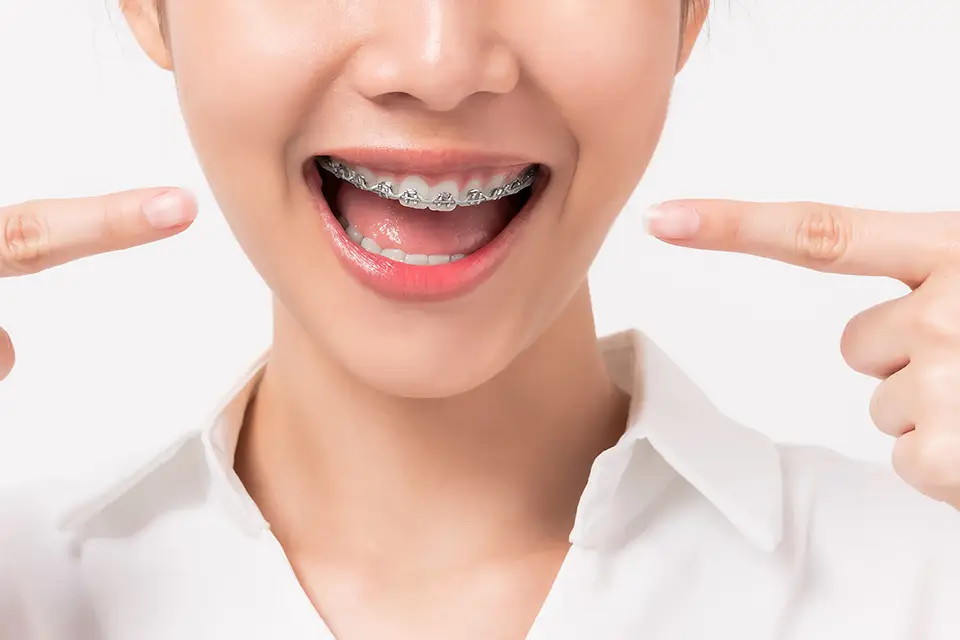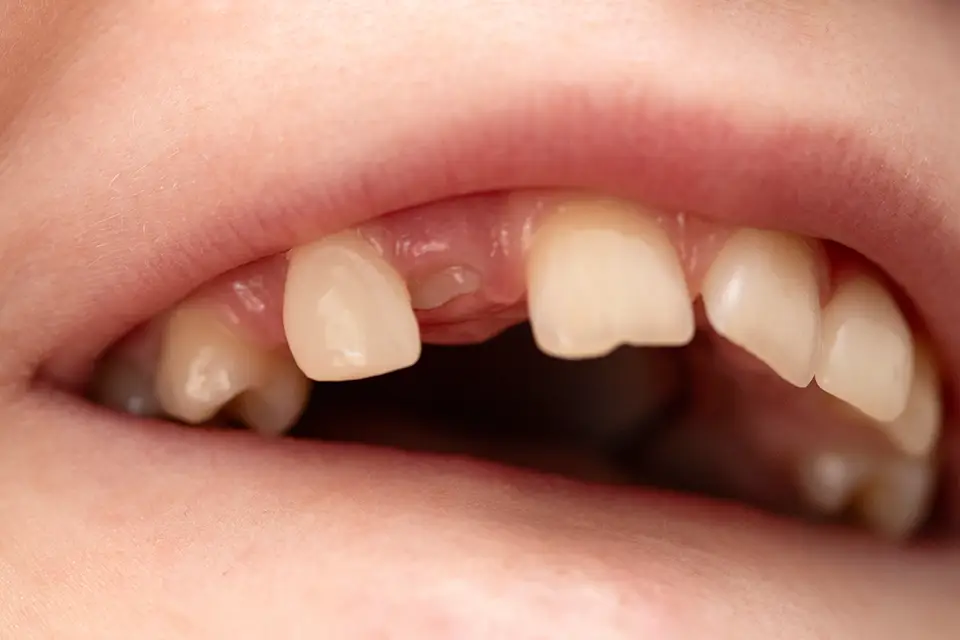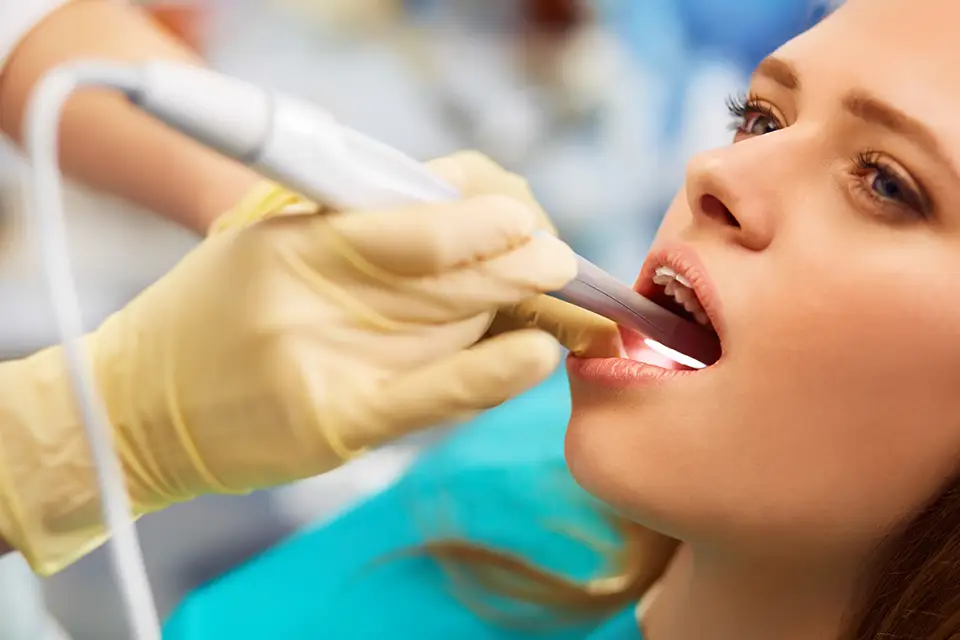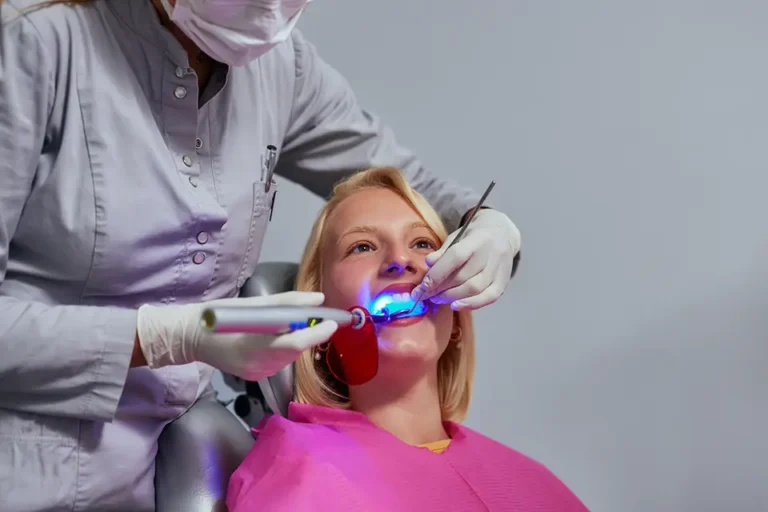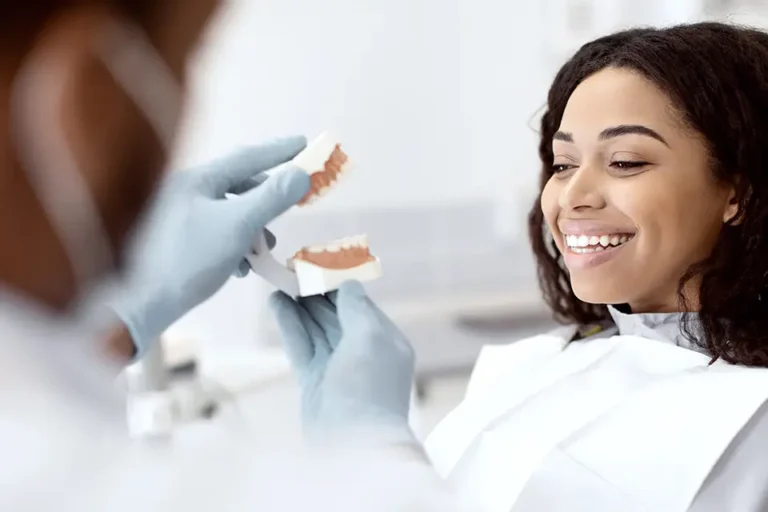A cracked tooth might result from grinding teeth at night, chewing hard foods, and may also happen naturally as someone age. A cracked tooth is widespread and the leading cause of teeth loss in developed countries.
What Is a Cracked Tooth?
A cracked tooth is a condition where there is a partial fracture originating from the crown, extending subgingivally. The tear usually is mesial-distal. The crack can lengthen through a marginal edge, or it can prolong via both proximal ridges. The vertical crack in tooth also keeps extending.
The crack can be entirely inside the crown of your tooth, or it can prolong perpendicularly into the root of your teeth. Cracked teeth are more centered, occlusal than the broken edge. Because a cracked tooth can extend apically instead of horizontally, there is a higher likelihood of periapical pathosis and pulpal.
The size and location of the crack can be somehow challenging to determine. However, some cracks are easy to see using magnification or because they have been stained by bacterial migration. Besides, the cracks may be determined using a dental explorer since they triggered a true enamel disconnection.
However, the surface size of the crack of your enamel might not directly link with the apical size of your crack. Also, patient symptoms vary. Some patients may present with biting pain and fever. Others might show no signs at all.
What Are the Causes of Cracked Tooth?
Teeth crack due to a variety of problems, including:
- Fillings that are so large will deteriorate the integrity of your tooth
- Clapping in the mouth can happen from a sports injury, a fistfight fall, or even a car accident.
- Biting or chewing hard foods, for instance, nuts, ice cream, or hard candy.
- Abrupt temperature variations in the mouth include eating something scorching and then cooling your mouth using ice water.
- Pressure from teeth grinding
- Age, with most cracks in the teeth arising in people with over 50 years of age.
Cracked Tooth Symptoms
A cracked tooth doesn’t indeed have any symptoms. Most individuals have a cracked tooth without even knowing it. Some forms of cracks are not hurtful and require no treatment.
Nevertheless, if you observe the below-listed warning sign, there may be a more far-reaching type of tooth crack requiring dental attention right away.
- Swollen gums surrounding the cracked teeth
- Teeth starting to be sensitive to cold or hot drinks suddenly
- A tooth all of a sudden becoming sensitive to sweetness
- Pain that comes and goes often
- Pain when you are eating, especially when biting or chewing
- Uneasiness around the gums and teeth that is difficult to determine
Diagnosis of a Cracked Tooth

Diagnosing a cracked tooth is quite challenging. If the crack is not noticeable, your dentist will have to diagnose it by asking you some questions about any symptoms and your dental history. Following this, the dentist may examine your teeth, possibly with the help of a magnifying glass, to detect cracks.
Additionally, the specialist can also apply a pointed tool known as a dental explore. Dental explorer clings to rough, cracked areas on the surface of your teeth. Using dental dye might also generate cracks by making them more noticeable.
As the dentist is examining you, he/she will have a lookout at your gums for any inflammation signs. This is because a cracked tooth mostly irritates the gums. They can also request you to bite something to find out the cause of the pain.
A dentist might as well order an X-ray for your teeth. Although X-rays will not always identify cracks’ location, they may reveal issues in your gums. The unhealthy pulp of your teeth could be a possible indication of a crack.
When Do You Need to Visit a Dentist?
If you suspect having a cracked tooth, you should make an effort and book an appointment at Zara Dental, which has the best dentist in Houston Texas. It is essential to take this action when you are experiencing some discomfort and pain.
Listed below are some home remedies that may help release uncomfortable symptoms.
- Taking pain relievers (buy over-the-counter), for example, ibuprofen.
- Rinse your mouth using some warm water to retain it clean
- Use a cold compress on the cheek to relieve swelling
The longer a cracked tooth is left untreated, the harder it can be for a dentist to save your tooth. Hitches can also arise, for instance, infection.
How Do I Prevent My Teeth From Cracking?
Although you cannot have a cracked tooth treated at home, you may try to avoid one.
• Healthy teeth have less possibility of cracking, and hence you should maintain good oral hygiene. Floss daily, brush twice a day and visit Zara Dental at Houston Texas, twice a year for preventive care.
• Do not chew hard food.
• When playing contact sports, always ensure you are wearing your mouth guards and have them on as you sleep (for those who grind their teeth).
Different Types of Cracked Teeth and Their Treatment Options
1. Craze Lines
Craze lines refer to the hairline cracks in teeth (tiny cracks) that usually affect only your outer enamel. These cracks are mostly found in an adult tooth.
Treatment
Craze lines do not cause any pain, are very shallow and do not matter beyond appearance. Most individuals have hairline cracks in teeth or tiny cracks in their teeth enamel. Where the cracks do not cause any pain or do not affect your appearance, your dentist might recommend no treatment at all.
2. Fractured Cusp
Once your lump (the pointy part of your chewing surface) weakens, it sometimes results in a fractured tooth. The damaged cusp may rupture on its own, or you might need the help of the best dentist in Houston Texas, to remove it. The sooner this happens, the faster your pain will get relieved.
Treatment
A broken cusp hardly harms the pulp, and therefore root canal treatment is rarely required. Your dentist will generally repair your tooth using a full crown.
3. Split Tooth
A tooth cracked over a long period usually causes a split tooth. The dentist can recognize the split tooth through a crack with some separable segments from each other.
Treatment
Mostly it is not possible to retain split teeth ultimately. However, the size and position of your crack determine whether any part of your tooth is retainable. Your dentist might recommend using a crown and endodontic treatment to save part of your tooth in few cases.
4. Vertical Root Fracture
Vertical root fractures start at the root of your tooth and run in the direction of your chewing surface. They often have minimal symptoms or signs; hence, you can fail to notice them for some time. Vertical crack in tooth is mostly realized once the surrounding gums and bones become infected.
Treatment
Treatment of vertical crack in tooth can include tooth extraction. Sometimes, endodontic surgery is suitable when part of your tooth is retainable by removing the broken root.
Complications of a Cracked Tooth
Generally, the most significant complication that can come with cracked teeth is an infection that might extend to your gums and bones. Some of the symptoms of a tooth infection (also called a tooth abscess) are:
- Pain when chewing
- Receptive glands in your neck
- Swollen gums
- Fever
- Sensitivity to heat and cold
- Bad breath
Your dentist will try and drain the discharge from the infection. Additionally, to destroy the bacteria, you will be given some antibiotics.
Can a Cracked Tooth Heal?
Timely diagnosis of a cracked tooth, whether a cracked front tooth or a cracked molar tooth, is essential. However, it is good to bear in mind that even with special lighting and high magnification, it may be challenging to establish the extent of your crack. If you are having a fractured tooth, seek treatment as soon as you can as it will gradually worsen, and in the long run, cause tooth loss. Prompt identification and treatment are necessary for answering the question, can a cracked tooth heal? And how to protect your teeth from horizontal crack in tooth.
Cost of Treatment
Costs vary depending on the extent of your crack, whether it is vertical or horizontal crack in tooth, and also the area of residence in the country. Dental prices are generally higher in large metropolitan areas.
In general, be expecting to pay more or less of following.
- For tooth extraction, $150 to $250.
- $1,000 to $1,500 for each crown. This will depend on the material employed to make the crown.
- For dental bonding $100 to $1,000, depending on complexity.
- $500 to $2,000 for a root canal. This will depend on the location of the tooth.
Conclusion
A cracked tooth is a huge experience for many people. Several procedures are obtainable in Houston Texas, to protect your appearance and the tooth.
Although the dentist may fix a crack, a cracked tooth cannot heal 100%, unlike a fractured bone. However, early treatment provides a better chance of saving a cracked molar tooth, cracked front tooth and preventing other damage and infections. And although your mouth may be uncomfortable following the treatment, the discomfort should go away within a few days.
Tooth crack is a common issue we encounter daily in dental practices. However, the best dentist in Houston Texas, Zara Dental, commits to protect all our client’s teeth. Contact us today for all your cracking issues.



